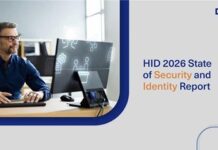
Vanderbilt has utilised the company’s engineering expertise to create efficient and effective recurring-monthly-revenue (RMR) security solutions, which effectively offer methods that can guarantee a regular monthly revenue stream of income for integrators. Compared with lengthy, complicated, and sometimes extensive setup and configuration periods for some on-premise applications, typically, the setup of a cloud-based solution via any web browser can be as simple as the purchase transaction itself.
Installers no longer have to request software and firmware updates from Vanderbilt and then physically visit the end-user to update the system. Instead, with cloud solutions, the end customer remains on the latest version. This means there is no longer a risk of updates going bad, having bugs, or being done incorrectly. This translates directly to a value to installers as well, as this service is still relevant to maintenance contracts, but will require zero effort.
Due to RMR systems’ automatic updates, installers will always be working on the most up-to-date version of the product. Additionally, all of the installer’s customers will have the same software. This delivers a value-add around efficiency. When providing technical support, installers will only be dealing with one single software platform.
According to Vanderbilt, RMR helps to maintain high service levels and proactively monitor service issues for the end-user. This predicts the possibility of a likely service event. Online services help users solve system problems online by providing real-time support without going to the site. Through service call planning, an installer can see service issues and prepare a technician with the right parts in advance of the visit. Also, installers can organise service calls into efficient locales so the technician will not be travelling great distances.
Less IT infrastructure requirements reduces the reliance on overworked IT departments. With RMR systems, the on-site hardware service is eliminated. This eliminates the user having server issues, and spending massive amounts of time searching for a resolution. Moreover, for the end-user, RMR systems typically deliver a lower cost of ownership over time due to lower service costs, lower hardware maintenance costs, and the ease of use of the product











